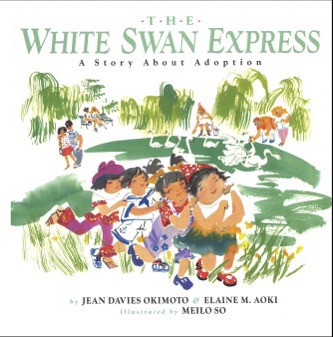When Vashon author Jean Davies Okimoto answered the phone one sunny morning last July, the last person she expected to hear on the line was a reporter from a newspaper in Singapore. Would she like to comment on the fact that her children’s picture book “White Swan Express: A Story About Adoption” was recently banned by Singapore’s National Library Board (NLB)?
That singular question began a surprising journey for Okimoto that culminated March 3 in Singapore. At the invitation of Robin Hemley, director of the Writer’s Centre at Yale-NUS College in Singapore, a collaboration between Yale University and the National University of Singapore, Okimoto spoke as a guest panelist at the symposium “Book Banning, Censorship and the Idealization of Childhood.” Okimoto also gave a workshop on writing children’s books and was honored at a reception in the U.S. embassy.
Okimoto’s book features several fictitious would-be parents looking to adopt children from China, including a lesbian couple who live on Vashon Island. The NLB planned to pulp “White Swan Express” along with another award-winning book, “And Tango Makes Three,” a real-life story about two male penguins hatching an egg and then raising the chick in New York City’s Central Park Zoo. The NLB intended to ban the two books because they featured same-sex couples, which did not represent the “pro-family” values of the conservative city-state.
After that first call last July, Okimoto received a flurry of inquiries from global media outlets, such as the BBC and ABC news, The Guardian Newspaper, The Los Angeles Times, Time.com and even Human Rights Watch, as the controversy sparked fierce debates on book censorship and gay rights. Homosexuality is against the law in Singapore.
“It caught fire,” Okimoto said. “There were huge protests in Singapore. There is a thriving LGBT community there and others who value books and are against book banning.”
Okimoto said that the protest put so much pressure on the NLB that the board decided not to pulp the two books, but instead shelved them in the adult section.
“‘White Swan Express’ is pro-family,” she said. “When I learned that the National Library of Singapore planned to destroy the book, I wondered if they thought there was enough love in the world so that we didn’t need to honor it in all families.”


